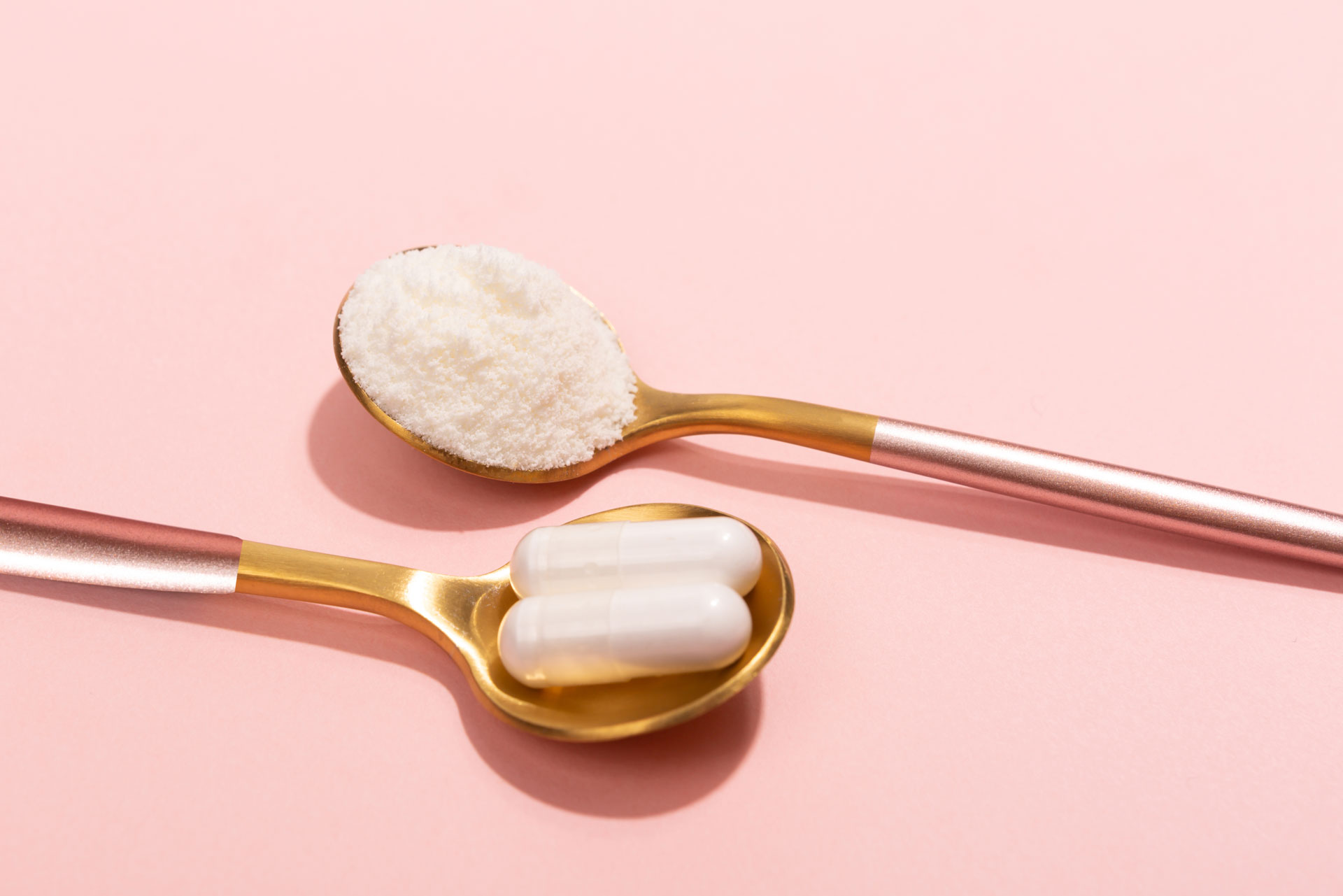Why Is Everyone Talking About Magnesium?
Magnesium has time. TikTok is full of news about minerals, the hashtag #magnesium has collected millions of views on the platform since the beginning of the year. Devotees are raving about the health benefits, saying it helps with everything from improving sleep (remember the sleeping mocktail girl?) to reducing anxiety. But what exactly is it? And do we need to take supplements? We asked the experts.
Magnesium: Health Benefits and Foods to Eat
Why Is Magnesium Important?
Magnesium is an essential macronutrient that plays an important role in many bodily processes, including bone health and mood. It is the fourth most abundant mineral in the body, yet our bodies do not produce it, so we need to get it through food or supplements.
‘Magnesium is an important mineral that our body uses for many functions,’ says Dr. Vijay Murthy, active medicine.octor and co-founder of Murthy Health. It supports energy production, helps control blood pressure and blood sugar levels, helps bones and ensures muscle and nerve function. Additionally, magnesium plays an important role in mood regulation and digestive health. Without enough magnesium, our bodies cannot perform these important functions effectively.’

Getty Images
Benefits include:
Bone health
‘About 60 percent of the body’s magnesium is stored in the bones, where it helps in the development of bone structure and is important for the absorption and metabolism of calcium,’ explains Murthy. ‘For example, getting enough magnesium can help prevent osteoporosis and promote strong, healthy bones, especially in older people.’
Metabolism of blood sugar
Blood sugar is another big trend in TikTok right now, but it’s an important factor for health. Magnesium helps regulate our levels by stimulating insulin secretion and action, says Murthy – which is why people with type 2 diabetes are often encouraged to increase their intake.
Emotion control
The wonder mineral can help boost your mental health too. ‘Magnesium is involved in the production of neurotransmitters that regulate mood, such as serotonin,’ says Murthy. ‘For example, research shows that magnesium supplementation can help reduce symptoms of depression and anxiety.’ Another study from 2006 reported magnesium glycinate effective treatment for depression, and recently researchers found Magnesium can help reduce stress.
Energy production
Do you feel strong? Magnesium can also help with this. ‘Magnesium is an important part of the energy production process in our cells,’ says Murthy. It is involved in the conversion of food into energy by converting adenosine triphosphate (ATP), which transports energy in the body. For example, during physical activities such as running or lifting weights, magnesium helps ensure that your muscles have the energy they need to work.’
Better sleep
Magnesium is a jack of all trades: as well as boosting energy, it can also help you wind down at night. As nutritionist Kim Pearson explains, the calming effects of minerals on the nervous system can help people relax. He explains: ‘this essential mineral has the ability to affect the calming GABA neurotransmitters, helping to reduce brain activity in preparation for sleep. Magnesium deficiency has been linked to insomnia and disrupted sleep patterns.’
It can also help with:
- Muscle and nerve function
- Blood pressure control
- Digestive health
How Much Magnesium Do We Need Each Day?
So they’re obviously important minerals, but are you getting enough? The recommended amount varies by age and gender.
Murthy suggests:
- Women ages 19-30 need 310 milligrams (mg) per day
- Women 31 and older need 320 mg per day
- Pregnant women aged 19-30 should take 350 mg per day
- Pregnant women aged 31-50 should get 360 mg per day
- Men aged 19-30 need 400 mg per day
- Men age 31 and older need 420 mg per day
What Are the Symptoms of Deficiency?
‘Magnesium deficiency can manifest itself in many ways,’ says Murthy. Common symptoms include muscle stiffness or pain, fatigue, weakness, loss of appetite, nausea and vomiting. Severe deficiency can lead to serious symptoms such as irregular heart rhythms and personality changes.’ Certain groups of people are more likely to be deficient, including people with gastrointestinal disorders, type 2 diabetes or alcohol dependence, as well as the elderly and athletes.
If you notice any of these symptoms, it is best to talk to your health care provider, who may suggest that you take supplements. ‘You can supplement with magnesium-rich foods and add it in pills, powders and even topically,’ suggests Hannah Alderson, nutritionist and hormone expert. ‘It comes in several forms when it comes to supplements, and each form will serve its purpose – for example, magnesium citrate is good for normal digestion and magnesium glycinate excellent for anxiety support, and very pleasant to take before bed. ‘

Unsplash
What Foods Are High in Magnesium?
There are many ways to increase magnesium production in your diet. Green leafy vegetables are a good source as they contain magnesium-rich chlorophyll, as are whole grains, nuts and seeds. This study found high levels of magnesium in Brazil nuts, oat bran, cashews, mackerel, spinach and Swiss chard, while another study highlighted chia seeds and pumpkin seeds as magnesium-rich foods.
Murthy recommends these sources:
- Pumpkin seeds: 162mg per ¼ cup
- Amaranth grains (cooked): 160mg per cup
- Brazil nuts: 107mg per ounce (about 6 nuts)
- Almonds: 80mg per ounce (about 23 nuts)
- Spinach (cooked): 78mg per ½ cup
- Swiss chard (cooked): 75mg per ½ cup
- Cashews: 74mg per ounce (about 16 nuts)
- Peanuts: 63mg per ¼ cup
- Black beans (cooked): 60mg per ½ cup
- Edamame (cooked): 50mg per ½ cup
- Avocado (cubed): 44mg per cup
- Brown rice (cooked): 43mg per ½ cup
#Talking #Magnesium
